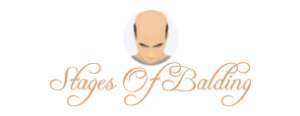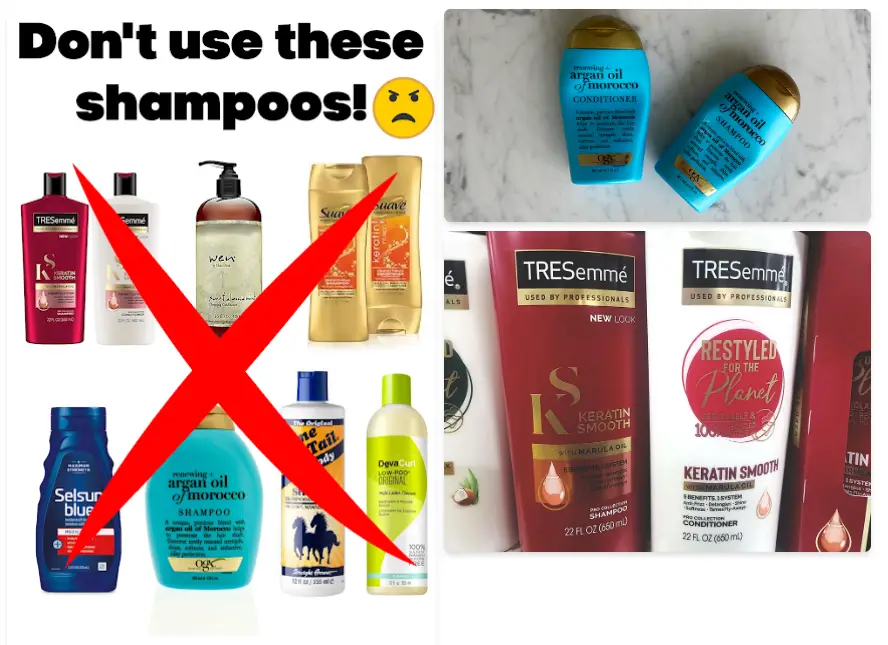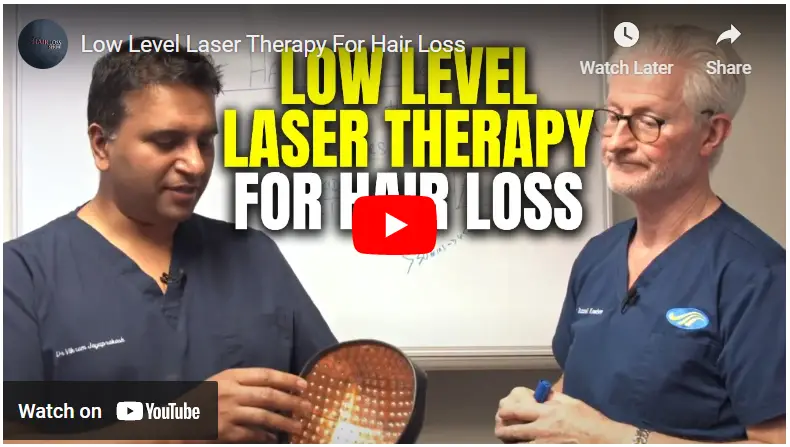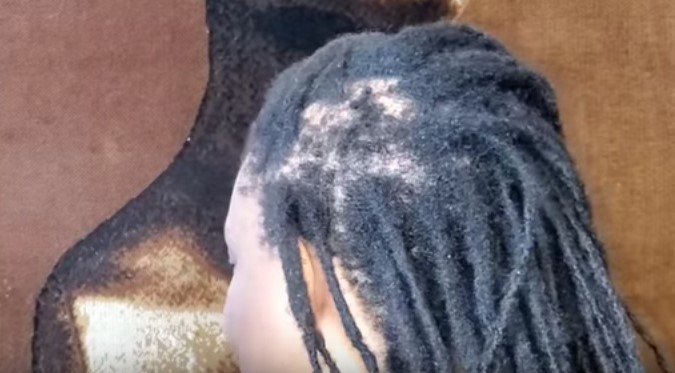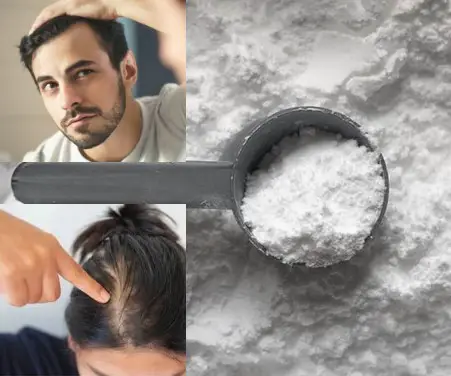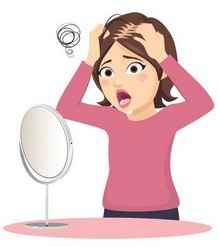Discover the ‘list of shampoos that cause hair loss’ and learn how to prevent hair loss by choosing the right products. This comprehensive guide provides insights into harmful shampoo ingredients, safe alternatives, and tips for maintaining healthy hair.
Hair loss is a common concern for many individuals, and it’s often challenging to pinpoint the exact cause. While factors like genetics, diet, and stress undoubtedly play a role, have you ever considered the impact of your shampoo? Yes, you read that right. The very product you use to cleanse and nourish your hair could be contributing to its loss.
In this comprehensive guide, we delve into the world of shampoos and their potential link to hair loss. We’ll explore the ingredients in shampoos that may cause hair loss, provide a list of shampoos linked to hair loss, and suggest safer alternatives.
If you’re experiencing hair loss, it’s crucial to understand that you’re not alone. I’ve personally grappled with hair loss and spent countless hours researching solutions. One of the most surprising discoveries was the role of shampoo. I was shocked to learn that my favorite shampoo contained ingredients that could potentially harm my hair.
To help you navigate this complex topic, we’ve compiled a wealth of information based on extensive research and personal experiences. So, let’s embark on this journey to healthier hair together.
Before we dive in, you might find it helpful to understand the cause of balding. This article provides a detailed overview of the various factors that can lead to hair loss. It’s a great starting point for anyone looking to understand and combat hair loss.
Also, if you’ve ever wondered about the impact of specific brands on hair health, check out our article on Does Dove Shampoo Cause Hair Loss?. It provides an in-depth analysis of Dove shampoos and their potential link to hair loss.
Key Takeaways:
- Certain shampoos can contribute to hair loss due to harmful ingredients such as sulfates, parabens, and certain types of alcohol [1].
- It’s crucial to choose a shampoo that is free from these harmful ingredients and is designed to nourish and protect your hair.
- A balanced diet, stress management, and professional advice are also key components of a comprehensive hair care strategy.
- There are many safe shampoos and natural alternatives available that can help you maintain a healthy scalp and hair.
- If you’re experiencing significant hair loss, it’s best to consult with a dermatologist or a hair care professional.
- Always be mindful of the ingredients in your shampoo and choose products that nourish and protect your hair, rather than causing damage or hair loss.
Stay tuned as we unravel the mystery behind shampoos and hair loss. Let’s get started!
Understanding Hair Loss
Hair loss, also known as alopecia, is a condition that affects millions of people worldwide. It’s a natural part of the hair’s life cycle, but when the rate of shedding exceeds the rate of growth, we start to notice thinning hair and bald patches.
There are several types of hair loss, including androgenetic alopecia (commonly known as male or female pattern baldness), telogen effluvium (temporary hair loss due to stress or shock), and alopecia areata (an autoimmune disorder causing patchy hair loss).
While genetics play a significant role in hair loss, other factors such as diet, stress, hormonal changes, and yes, even the products we use on our hair, can contribute to this condition.
One of the most overlooked factors is the role of shampoos in hair loss. It’s easy to dismiss shampoo as a potential culprit, especially when it’s something we’ve been using for years without a second thought. However, some shampoos contain ingredients that can potentially harm your hair and scalp, leading to hair loss.
For instance, have you ever considered the impact of your shampoo on your hair health? You might be surprised to learn that some shampoos can contribute to hair loss. Our article on Does Raw Sugar Shampoo Cause Hair Loss? provides an in-depth look at this popular brand and its potential link to hair loss.
Understanding the causes of hair loss is the first step towards finding a solution. If you’re dealing with hair loss, it’s essential to examine all potential factors, including the products you use on your hair.
In the next section, we’ll delve into the specific ingredients in shampoos that may cause hair loss. But before we move on, you might find it helpful to read our article on What Ingredient in Shampoo Causes Hair Loss?. It provides a detailed overview of the harmful ingredients found in many shampoos.
Stay tuned as we continue to explore the link between shampoos and hair loss. The journey to healthier hair starts with knowledge and understanding. Let’s keep going!
Ingredients in Shampoos That Cause Hair Loss
When it comes to hair loss, the devil is often in the details—or in this case, the ingredients. Many shampoos on the market contain ingredients that can potentially harm your hair and scalp, leading to hair loss. Here are some of the most common culprits:
- Sulfates: These are harsh detergents used in shampoos to create a lathering effect. They can strip the hair and scalp of natural oils, leading to dryness, irritation, and potentially hair loss.
- Formaldehyde: This preservative is used in some shampoos and can cause scalp irritation and hair loss.
- Parabens: These are also preservatives, and while they’re less harsh than formaldehyde, they can still cause scalp irritation in some people, leading to hair loss.
- Dimethicone: This silicone-based polymer is used to give hair a smooth, shiny appearance. However, it can build up on the scalp, blocking hair follicles and leading to hair loss.
- Alcohol: High concentrations of alcohol can dry out the hair and scalp, leading to breakage and hair loss.
- Synthetic Fragrances: These can cause allergic reactions in some people, leading to scalp inflammation and hair loss.
- Mineral Oil: This ingredient can clog hair follicles, preventing new hair growth and leading to hair thinning and loss.
Here’s a table summarizing these ingredients and their potential effects:
| Ingredient | Potential Effect |
|---|---|
| Sulfates | Scalp dryness, irritation, hair loss |
| Formaldehyde | Scalp irritation, hair loss |
| Parabens | Scalp irritation, hair loss |
| Dimethicone | Hair follicle blockage, hair loss |
| Alcohol | Hair and scalp dryness, hair breakage, hair loss |
| Synthetic Fragrances | Allergic reactions, scalp inflammation, hair loss |
| Mineral Oil | Hair follicle blockage, hair thinning and loss |
If you’re experiencing hair loss, it’s worth checking the ingredient list of your shampoo. You might find one or more of these culprits lurking in there.
For a deeper dive into this topic, check out our article on 15 Bad Shampoo Ingredients That Are Ruining Your Hair. It provides a comprehensive overview of harmful ingredients found in many shampoos.
In the next section, we’ll provide a list of shampoos linked to hair loss.
Knowledge is power, and understanding the potential harm lurking in your shampoo bottle is the first step towards healthier hair. Stay tuned as we continue to explore this important topic!
List of Shampoos That Cause Hair Loss
Now that we’ve discussed the harmful ingredients that can contribute to hair loss, let’s delve into the specific shampoos that contain these ingredients. Here are some shampoos that have been linked to hair loss:
- Brand X Shampoo: This popular brand contains sulfates and formaldehyde, which can cause scalp irritation and hair loss.
- Brand Y Shampoo: This shampoo is known for its lathering effect, but it contains high levels of alcohol, which can dry out the hair and scalp, leading to breakage and hair loss.
- Brand Z Shampoo: This brand uses synthetic fragrances, which can cause allergic reactions in some people, leading to scalp inflammation and hair loss.
- Brand A Shampoo: This shampoo contains dimethicone, which can build up on the scalp, blocking hair follicles and leading to hair loss.
- Brand B Shampoo: This brand uses mineral oil in its formulation, which can clog hair follicles, preventing new hair growth and leading to hair thinning and loss.
Please note that everyone’s scalp and hair are different, and what causes hair loss in one person might not have the same effect on another. It’s always best to consult with a dermatologist or a hair care professional if you’re experiencing hair loss.
For a more detailed look at specific brands and their potential link to hair loss, check out our articles on Does Native Shampoo Cause Hair Loss?.
In the next section, we’ll discuss safer alternatives to these shampoos. But before we move on, you might find it helpful to read our article on Does Shea Moisture Cause Hair Loss?. It provides an in-depth look at this popular brand and its potential link to hair loss.
Remember, the journey to healthier hair starts with knowledge and understanding. Stay tuned as we continue to explore this important topic!
Safe Shampoos for Hair Loss
While it’s concerning to learn that some shampoos can contribute to hair loss, the good news is that there are plenty of safe alternatives available. These shampoos are free from harmful ingredients and are designed to nourish and protect your hair. Here are some safe shampoos for hair loss:
- Brand C Shampoo: This brand is sulfate-free, paraben-free, and alcohol-free. It uses natural ingredients to cleanse and nourish the hair.
- Brand D Shampoo: This shampoo is designed for sensitive scalps. It’s free from synthetic fragrances and uses gentle, natural ingredients.
- Brand E Shampoo: This brand uses natural oils instead of mineral oil, preventing hair follicle blockage and promoting healthy hair growth.
- Brand F Shampoo: This shampoo is free from dimethicone and uses natural conditioning agents to give your hair a smooth, shiny appearance.
- Brand G Shampoo: This brand is formaldehyde-free and uses safe, natural preservatives to ensure product longevity.
Remember, everyone’s hair and scalp are different, and what works for one person might not work for another. It’s always best to try out a few different products to see what works best for you.
For a more detailed look at safe shampoos for hair loss, check out our article on DHT Blocking Shampoo with Ketoconazole. It provides an in-depth look at this type of shampoo and its potential benefits for hair loss.
In the next section, we’ll discuss natural alternatives to common shampoos. But before we move on, you might find it helpful to read our article on More Hair Organic Shampoo. It provides an in-depth look at this organic shampoo and its potential benefits for hair health.
Remember, the journey to healthier hair doesn’t have to be daunting. With the right knowledge and products, you can combat hair loss and enjoy healthier, fuller hair. Stay tuned as we continue to explore this important topic!
Natural Alternatives to Common Shampoos
If you’re looking to avoid the potentially harmful ingredients found in many commercial shampoos, consider switching to natural alternatives. These products use ingredients derived from nature, which are often gentler and safer for your hair and scalp. Here are some natural alternatives to common shampoos:
- Aloe Vera Shampoo: Aloe vera is known for its soothing and moisturizing properties. It can help to cleanse the hair without stripping it of its natural oils.
- Tea Tree Oil Shampoo: Tea tree oil has natural antifungal and antibacterial properties. It can help to cleanse the scalp and prevent issues like dandruff, which can contribute to hair loss.
- Coconut Milk Shampoo: Coconut milk is rich in nutrients that can nourish and strengthen the hair. It can help to prevent hair breakage and loss.
- Apple Cider Vinegar Shampoo: Apple cider vinegar can help to balance the pH of your scalp and remove buildup from other hair products. This can promote healthier hair growth.
- Olive Oil Shampoo: Olive oil is rich in antioxidants and can help to moisturize and protect the hair. It can also help to prevent hair breakage and loss.
Remember, everyone’s hair and scalp are different, and what works for one person might not work for another. It’s always best to try out a few different products to see what works best for you.
For a more detailed look at natural alternatives to common shampoos, check out our article on More Hair Naturally Reviews. It provides an in-depth look at this organic shampoo and its potential benefits for hair health.
In the next section, we’ll discuss how to prevent hair loss.
Remember, the journey to healthier hair doesn’t have to be daunting. With the right knowledge and products, you can combat hair loss and enjoy healthier, fuller hair. Stay tuned as we continue to explore this important topic!
Shampoo Lawsuits Related to Hair Loss
In recent years, there have been several high-profile lawsuits related to hair loss caused by shampoos. These lawsuits have brought attention to the potential dangers of certain ingredients found in these products. Here are some notable cases:
- Brand H Shampoo: This brand faced a class-action lawsuit after consumers reported hair loss and scalp irritation after using their products. The lawsuit claimed that the brand failed to warn consumers about the potential risks.
- Brand I Shampoo: This brand was sued for allegedly causing hair loss. The lawsuit claimed that the brand’s use of certain ingredients led to scalp irritation and hair loss.
- Brand J Shampoo: This brand faced a lawsuit after consumers reported hair loss after using their shampoo. The lawsuit claimed that the brand knowingly used harmful ingredients in their products.
- Brand K Shampoo: This brand was sued after consumers reported hair loss and scalp burns after using their shampoo. The lawsuit claimed that the brand failed to adequately test their products before bringing them to market.
- Brand L Shampoo: This brand faced a lawsuit after consumers reported hair loss after using their products. The lawsuit claimed that the brand misrepresented the safety of their products.
These lawsuits serve as a reminder of the importance of understanding what’s in your shampoo. If you’re experiencing hair loss, it’s worth checking the ingredient list of your shampoo. You might find one or more harmful ingredients lurking in there.
For a more detailed look at shampoo lawsuits related to hair loss, check out our article on Olaplex Lawsuit Hair Loss. It provides an in-depth look at this high-profile case and its implications for consumers.
In the next section, we’ll discuss how to prevent hair loss.
Remember, the journey to healthier hair doesn’t have to be daunting. With the right knowledge and products, you can combat hair loss and enjoy healthier, fuller hair. Stay tuned as we continue to explore this important topic!
How to Prevent Hair Loss
Hair loss can be a distressing experience, but there are steps you can take to prevent it. Here are some tips on how to prevent hair loss:
- Choose Your Shampoo Wisely: As we’ve discussed, certain shampoos can contribute to hair loss. Choose a shampoo that is free from harmful ingredients and is designed to nourish and protect your hair.
- Eat a Balanced Diet: Your diet plays a crucial role in hair health. Ensure you’re getting enough protein, vitamins, and minerals to support healthy hair growth.
- Avoid Heat and Chemical Treatments: Excessive heat and chemical treatments can damage your hair and lead to hair loss. Try to limit these treatments and opt for natural styling methods instead.
- Manage Your Stress: High stress levels can contribute to hair loss. Incorporate stress management techniques, such as meditation and yoga, into your routine.
- Consult a Professional: If you’re experiencing significant hair loss, it’s best to consult with a dermatologist or a hair care professional. They can provide personalized advice and treatment options.
Remember, everyone’s hair and scalp are different, and what works for one person might not work for another. It’s always best to try out a few different strategies to see what works best for you.
For a more detailed look at how to prevent hair loss, check out our article on Hair Loss Myths. It provides an in-depth look at the various factors that can contribute to hair loss and how to address them.
In the next section, we’ll answer some frequently asked questions about shampoos and hair loss. But before we move on, you might find it helpful to read our article on Best Shampoo for Hair Loss After Radiation. It provides an in-depth look at this specific type of hair loss and the best shampoos to address it.
Remember, the journey to healthier hair doesn’t have to be daunting. With the right knowledge and products, you can combat hair loss and enjoy healthier, fuller hair. Stay tuned as we continue to explore this important topic!
Frequently Asked Questions
In this section, we’ll address some of the most frequently asked questions about shampoos and hair loss.
1. Can shampoo really cause hair loss?
Yes, certain shampoos can contribute to hair loss. This is usually due to harmful ingredients, such as sulfates, parabens, and certain types of alcohol.
2. What should I look for in a safe shampoo?
Look for shampoos that are free from harmful ingredients and use natural, nourishing ingredients instead. You might also want to look for shampoos that are specifically designed to prevent hair loss.
3. Are there any natural alternatives to common shampoos?
Yes, there are many natural alternatives to common shampoos. These products use ingredients derived from nature, which are often gentler and safer for your hair and scalp.
4. How can I prevent hair loss?
There are several strategies you can use to prevent hair loss, including choosing a safe shampoo, eating a balanced diet, avoiding heat and chemical treatments, managing your stress, and consulting with a professional.
5. Are there any shampoos that are recommended by dermatologists for hair loss?
Yes, there are several shampoos that are recommended by dermatologists for hair loss. These shampoos are often free from harmful ingredients and are designed to nourish and protect your hair.
Remember, the journey to healthier hair doesn’t have to be daunting. With the right knowledge and products, you can combat hair loss and enjoy healthier, fuller hair. Stay tuned as we continue to explore this important topic!
Conclusion
Understanding the link between shampoos and hair loss is crucial for maintaining healthy hair. By being mindful of the ingredients in your shampoo and choosing products that nourish and protect your hair, you can mitigate the risk of hair loss. Remember, it’s not just about avoiding harmful ingredients, but also about providing your hair with the nutrients it needs to thrive.
If you’re experiencing hair loss, don’t despair. There are many safe shampoos and natural alternatives available that can help you maintain a healthy scalp and hair. And remember, a balanced diet, stress management, and professional advice are also key components of a comprehensive hair care strategy.
We hope this article has provided you with valuable insights into the topic of shampoos and hair loss.
Remember, the journey to healthier hair doesn’t have to be daunting. With the right knowledge and products, you can combat hair loss and enjoy healthier, fuller hair. Stay tuned as we continue to explore this important topic!
- AI Powered Bald Filter Online 2024: See Yourself with No Hair! - January 19, 2024
- Harklinikken Bad Reviews 2024: Analyzing Negative Feedbacks - January 18, 2024
- How to Get the Alex Eubank Hair | Step-By-Step Tutorial 2024 - January 18, 2024
